Facebook has gone through an extensive metamorphosis since the 2016 U.S. presidential election, to combat the misinformation and other abuse of its social networks, and to rekindle growth after a stall in 2018, CNBC reported on Saturday.
The shift has spurred numerous changes to the company’s executive leadership. Founder and CEO Mark Zuckerberg has reshuffled his deck of lieutenants while remaining one of the few constants at the helm of the company and taking a more active role in aspects of the company he’d previously left to other execs.
This is who leads Facebook in 2020.
Mark Zuckerberg: Founder and CEO
Zuckerberg has been the key decision maker for Facebook since he founded the company as a student at Harvard in 2004.
Throughout his career, Zuckerberg has made bold decisions, never afraid to go against the wishes of his users or his executives. That was the case in 2006 when the company rolled out the News Feed, which many users hated, and when Zuckerberg rejected a $1 billion acquisition offer from Yahoo, to the dismay of his deputies.
Zuckerberg has also led the company through several notable acquisitions, starting with the $1 billion purchase of Instagram in 2012, and the $19 billion deal for WhatsApp and $2 billion acquisition of Oculus in 2014.
More recently, Zuckerberg has directed Facebook through numerous scandals, including the battle against misinformation and foreign manipulation of the platform following the 2016 U.S. election and the 2018 Cambridge Analytica scandal.
Zuckerberg has reportedly told his top executives that the company is at war, and he has taken on a more aggressive approach to his leadership. In January, Zuckerberg told analysts that his “goal for this next decade isn’t to be liked, but to be understood” and a few days later he said that his new approach is “going to piss off a lot of people.”
This new style of leadership has been on clear display since February, as Facebook has taken a number of bold actions in response to the coronavirus pandemic.
Facebook has been among the most progressive companies in terms of allowing employees to work from home, set up a $100 million grant programme to support small businesses, and has released numerous new products geared to consumers who are stuck at home and going online more than ever.
Zuckerberg has personally been involved with many of these decisions, and the results have been clear: The company’s stock price reached an all-time high this week.
Sheryl Sandberg: COO

Since the moment Sandberg joined Facebook in 2008, she has been Zuckerberg’s no. 2. Most notably, Sandberg has been in charge with running all the parts of the business Zuckerberg had little interest in, such as growing the company’s ad business and handling its communications.
Sandberg came to Facebook from Google, where she was vice president of global online sales and operations. Upon joining Facebook, Sandberg was tasked with growing Facebook’s revenue and advertising businesses in preparation for an inevitable IPO.
Before her arrival, Facebook had generated a little more than $150 million in revenue in 2007. Sandberg helped grow that figure nearly 2,400% to $3.7 billion by 2011.
Over the past decade, Sandberg’s profile has had a meteoric rise alongside Facebook’s own growth. This was perhaps most emphasized in 2013 when her book “Lean In: Women, Work, and the Will to Lead” was published.
More recently, however, Sandberg has come under fire. Although employees still praise her work, her influence at the company has reportedly diminished following the numerous scandals the company has gone through in recent years.
A report by the New York Times says Zuckerberg’s increased involvement in the company’s numerous dealings has been “an effective sidelining of” Sandberg. Another report from Variety said Sandberg is now a “flight risk.” (Sandberg swiftly rejected both contentions.)
Whether or not her influence has diminished, she remains a prominent face for the company.
Mike Schroepfer: Chief Technology Officer
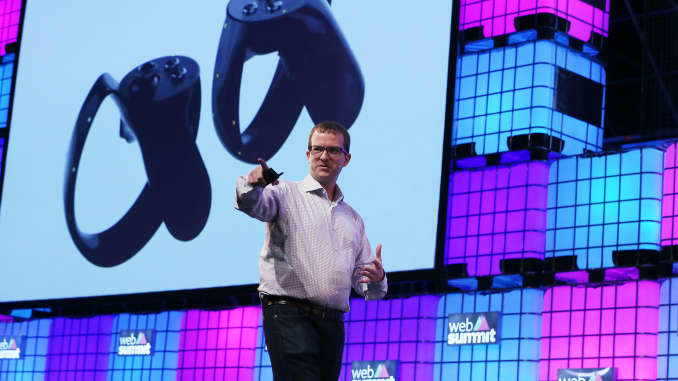
Zuckerberg vision for Facebook’s tech prowess knows few bounds, and his CTO Schroepfer is often the man tasked with bringing those ambitions to reality.
“Schrep,” as everybody in the company calls him, is the top technical executive at the social network, and he’s often praised for his technical chops and being a thoughtful leader. One of his key roles is leading Facebook’s efforts in the development of artificial intelligence. That AI technology is key to how the company moderates content to prevent the spread of misinformation, harassment and other types of abuse on its services.
Besides AI, Schroepfer is also the top guy when it comes to Facebook’s other big bets, including development related to the Libra digital currency, the company’s hardware devices and Facebook’s development of brain-computing technology.
Adam Mosseri: Head of Instagram
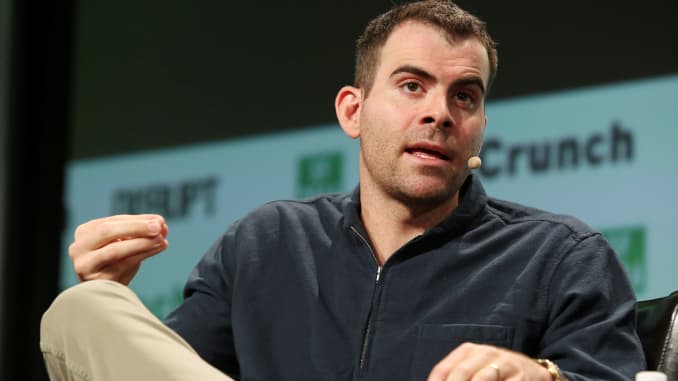
Instagram is indisputably the coolest part of Facebook, and Adam Mosseri is the head of that division.
Mosseri started at Facebook as a product designer in 2008 and is known for his tight relationship with Zuckerberg. He has played many key roles: He previously ran the company’s News Feed — the core feature of Facebook’s flagship social network — then cofounded the integrity team that combats misinformation.
Zuckerberg handed the Instagram keys to Mosseri in October 2018, after the original co-founders Kevin Systrom and Mike Krieger suddenly quit the previous month. Since then, Mosseri has become one of the most public-facing executives at Facebook. He often appears on podcasts, responds to tweets and live streams from his Instagram account.
Andrew Bosworth: Head of AR/VR
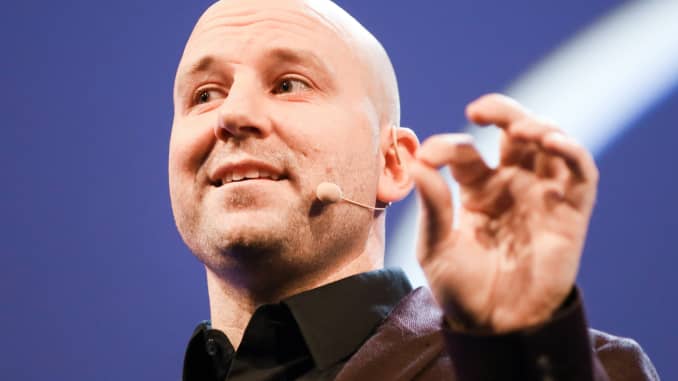
Bosworth and Zuckerberg go back to their days at Harvard, and since joining Facebook in 2006, Bosworth has gained a reputation for being a guy who gets things done. Bosworth led the company’s development of software for Facebook’s ad business, which generates more than 98 percent of its revenue
As Facebook got serious about diversifying its revenue stream through hardware development, Zuckerberg turned to his trusted deputy and made him the head of hardware in August 2017. He now leads the development of Facebook’s efforts with the Oculus virtual reality unit, the Portal video-calling smart-home devices and some experimental long-term projects, including its development of brain-computing technology.
He’s also known for his blunt insights into the company’s business, which he posts on his blog and internal message boards — sometimes causing trouble, such as a leaked 2016 memo that appeared to praise the company’s “growth at all costs” mentality (Bosworth later said the post was meant sarcastically).
Although many have feared the wrath of Boz, few can argue with his results.
Fidji Simo: Head of Facebook

Everyone knows Sandberg, the top woman at Facebook, but few know the second-most-powerful woman at the comany. It’s Fidji Simo, who runs the core Facebook product, which is known internally as the “blue app.”
After joining in 2011, Simo quickly rose the ranks at the company through her skills as a product manager. She’s known for her distinctive European style and for having Zuckerberg’s ear. That’s key considering she now holds the same job Zuckerberg had when he first invented Facebook.
Javier Olivan: Vice President of Growth
In April, Facebook announced that it now has nearly 3 billion monthly users across the company’s family of apps. That type of growth is unprecedented for any product in human history, and it wouldn’t have been possible without Javier Olivan.
Olivan keeps a low public profile, but within the company, his contributions are stuff of legend. As the VP of Growth, Olivan has one of the most difficult jobs at Facebook: he’s responsible for ensuring Facebook shows impressive user growth to investors quarter after quarter. A stumble can have devastating effects on the company’s stock price.
“Javi,” as he is known, has been described as the jewel in Facebook’s crown. Numerous companies have tried to poach him, including rival Snap, but Zuckerberg has never let him go. Zuckerberg counts on Olivan to make sure Facebook keeps attracting new users, and gives Olivan the freedom to experiment and the resources he wants to make it happen.
David Fischer: Chief Revenue Officer
Facebook makes money by running targeted ads, and the executive in charge of that global business is David Fischer.
Fischer came to Facebook from Google, following the path blazed by Sandberg. Since then, he has built the company’s ad business while staying out of the limelight. Fischer is known for avoiding the spotlight — he allows others to bask in the glory while focusing on results.
Dave Wehner: Chief Financial Officer
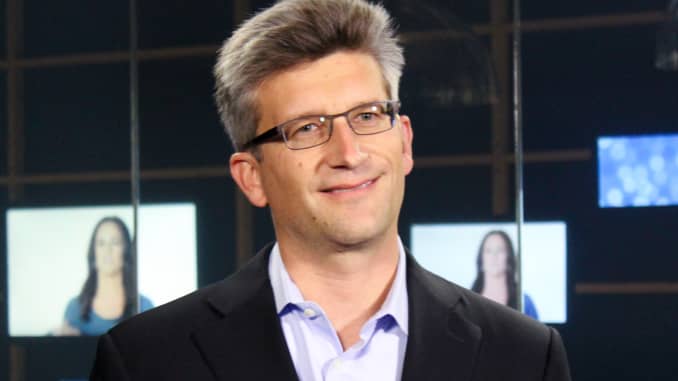
Dave Wehner is among the less influential c-suite executives at Facebook, but that doesn’t change the significance of his role. While others innovate and build, Wehner lays in the background as a passive CFO.
Wehner’s main job is ensuring that teams stay within budget. Facebook rarely has a shortfall, but Wehner makes sure the wheels keep turning financially.
Where Wehner truly shines is every three months when it’s time for Facebook to release its quarterly earnings. Alongside Zuckerberg and Sandberg, Wehner is the only other executive who speaks on the quarterly report, explaining to Wall Street why Facebook is doing what it’s doing.
David Marcus: Head of Calibra
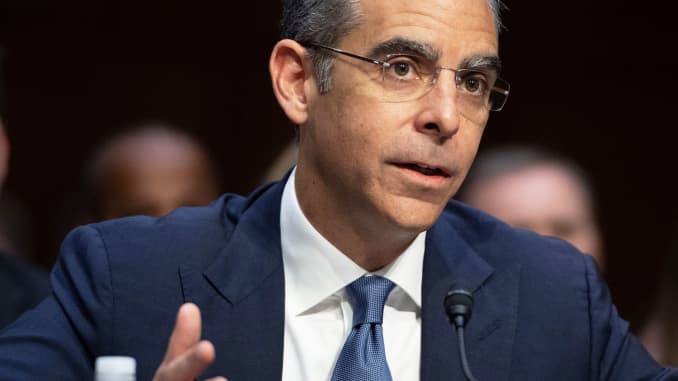
David Marcus is one of the most notable hires in the history of Facebook. The company nabbed him to run the company’s Messenger division after his tenure as president of PayPal. Marcus ran Messenger until 2018 when he left the division to run a mysterious new blockchain project at Facebook.
That project turned out to be the Libra digital currency and Facebook’s Calibra digital wallet.
The vision was to build a digital currency that Facebook users could send to one another virtually and across international borders. Facebook announced the project nearly one year ago, but after facing severe pushback from regulators and lawmakers worldwide, Libra and Calibra have yet to see the light of day.
As head of Calibra, Marcus has had to go to congressional hearings and face rigorous questions from lawmakers skeptical of trusting Facebook with their money. At the time of Libra and Calibra’s unveiling, Marcus promised a 2020 launch. So far, that hasn’t happened.
Stan Chudnovsky: Head of Messenger
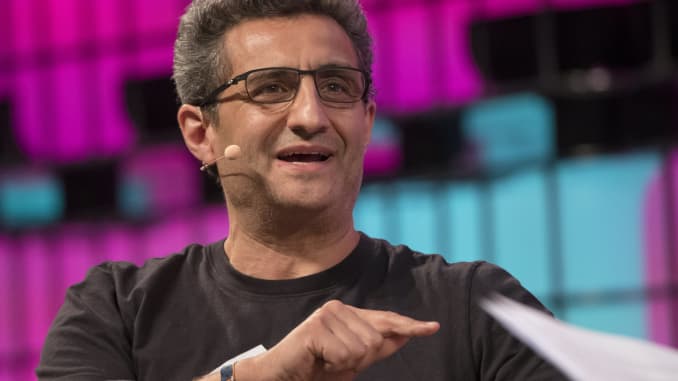
In March 2019, Zuckerberg wrote a 3,000-word memo foretelling that Messenger and WhatsApp would become the main ways people communicate on Facebook. He also outlined his desire for interoperability between those apps and Instagram.
Stan Chudnovsky leads a major part of that project as head of Messenger. He’s a product guy with a reputation as a growth hacker. His strength is in getting users to adopt products.
Will Cathcart: Head of WhatsApp
Will Cathcart, the head of WhatsApp, leads the other half of that project.
Cathcart joined in 2010 and was among the first 50 product managers at the company, a key group at Facebook. When new employees Facebook, Cathcart is shown as a role model for starting there young and working his way up. Cathcart cut his teeth working on the core blue app, and he was elevated to the head of WhatsApp after Chris Daniels left the company in March 2019.
Nick Clegg: Vice President of Global Affairs & Communications
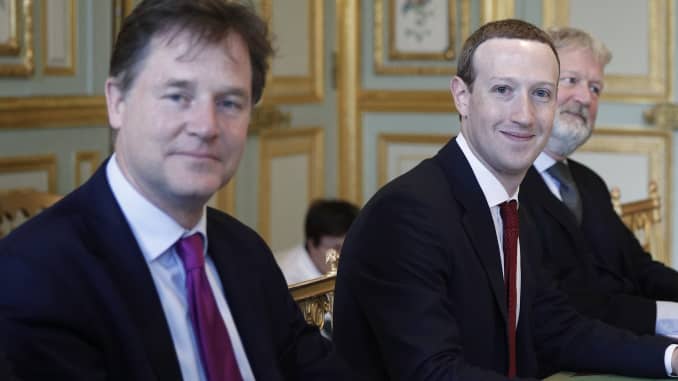
Facebook hired Nick Clegg, the former deputy prime minister of the U.K., in October 2018 after facing numerous scandals, most notably Cambridge Analytica, where it was revealed that a political research firm had improperly acquired information about Facebook users and then used it to target political ads, including ads favoring Donald Trump for the presidency.
Clegg’s arrival came as talk of antitrust investigations and privacy violations by Facebook began to reach a fever pitch. Europe tends to be more proactive than the U.S. when it comes to this type of regulatory action against tech companies, and Clegg is well-versed in European politics and bureaucracy, putting the company in better position to deal with any legal actions that may come its way.
Joel Kaplan: VP of Global Policy
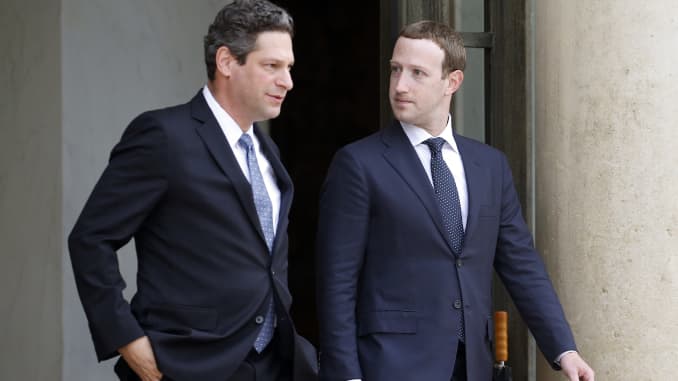
When it comes to dealing with Washington, Joel Kaplan is Facebook’s point person. An alum of George W. Bush’s presidential administration, Kaplan is well connected in the nation’s capital, and his Republican ties have also been an asset for the company during the Trump presidency.
However, Kaplan has also drawn some controversy — most notably, some Facebook employees were outraged when he attended a Supreme Court nomination hearing for his friend Brett Kavanaugh, who faced accusations of sexual assault. (Kavanaugh has denied these accusations. He was confirmed and now sits on the court.)
Despite that incident, Kaplan remains an influential person at Facebook, and was reportedly instrumental in setting up a meeting between Zuckerberg and Trump last fall. His tight relationships with Sandberg, whom he dated at Harvard, and Zuckerberg ensure a right-wing perspective is always represented at the social network.
Ime Archibong: Head of New Product Experimentation
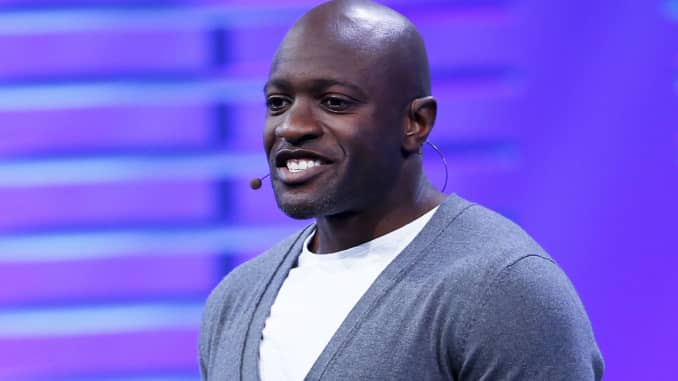
Ime Archibong is the highest-ranking person of color within Facebook. Archibong has been with the company since 2010, and he has a close relationship with Zuckerberg, with whom he used to go on runs for exercise.
Archibong previously led the company’s connectivity efforts to get more people around the world online, but in August, Archibong became the head of Facebook’s New Product Experimentation division, according to his LinkedIn profile. NPE is a brand new unit within Facebook, and it’s responsibility is to build new consumer apps. If Archibong can score a hit or two, NPE will have been a success.
Marne Levine: Vice President of Partnerships

As VP of Partnerships, Marne Levine’s job is to handle Facebook’s relationships with its numerous partners, no matter how diplomatic or strained they may be. Levine has been at the company since 2010, and she is one of Sandberg’s most trusted allies. Prior to her current role, Levine served as the chief operating officer of Instagram.
Naomi Gleit: VP of Social Good
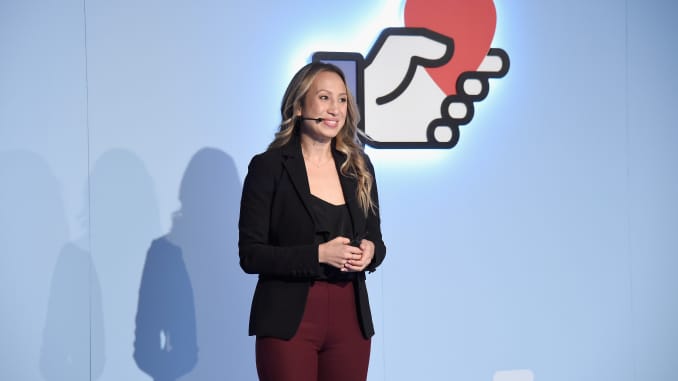
Besides Zuckerberg, Gleit is among the longest-tenured employees at Facebook — her LinkedIn profile says she joined in 2005. She is in charge of the company’s Social Good division, which is responsible for building features like the tool that lets users mark themselves as safe during a disaster or the features that allow people to hold fundraisers for charities of their choice on their birthdays. Gleit is known as one of the moral compasses at the company.


